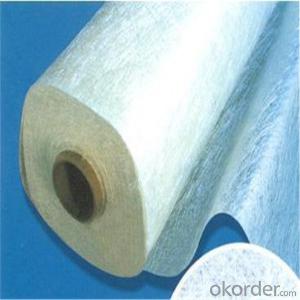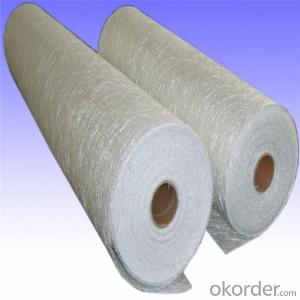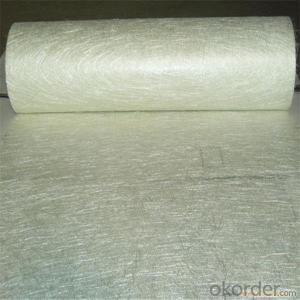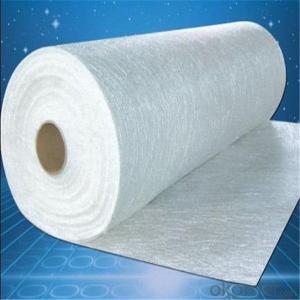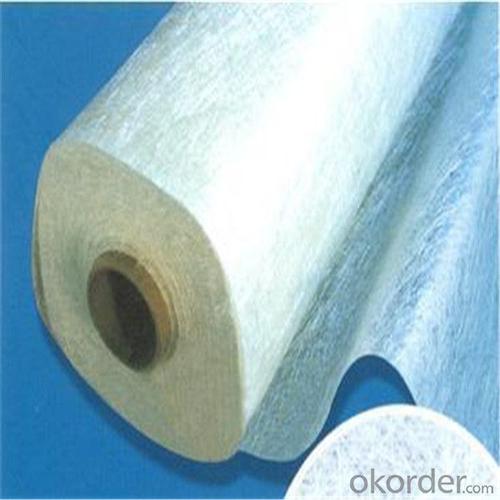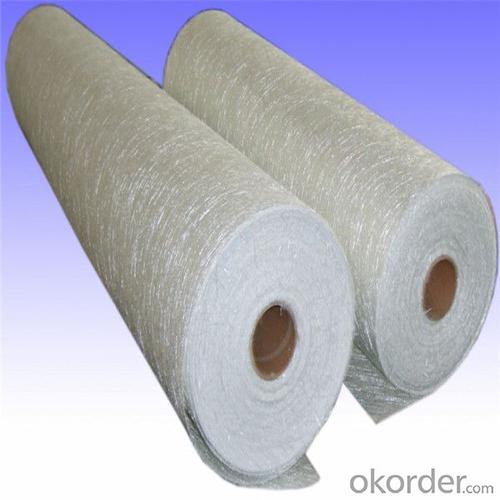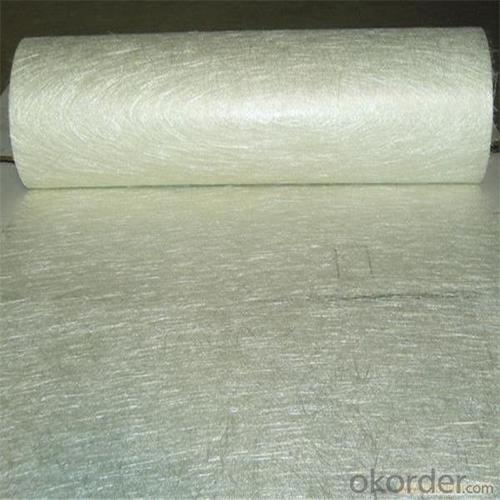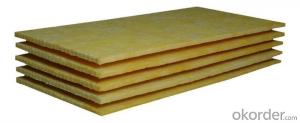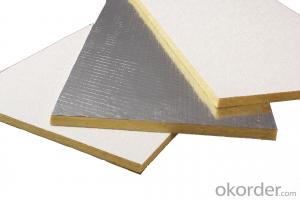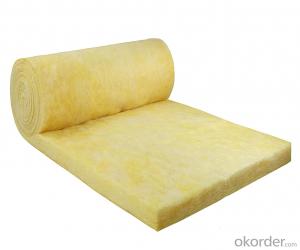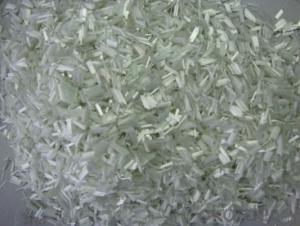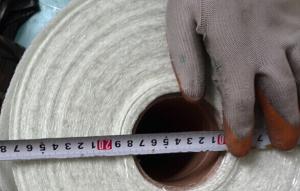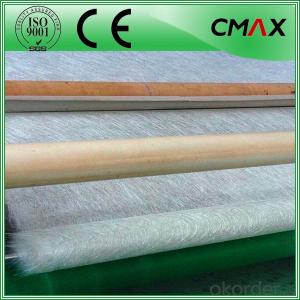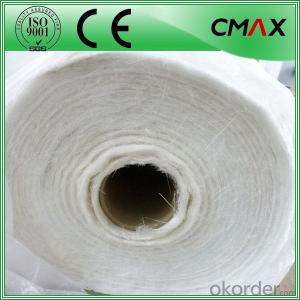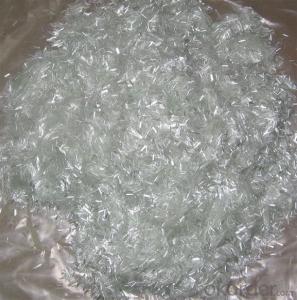Fiberglass Mat Tissue Chopped Strand Mat for Thermoplastics
- Loading Port:
- Tianjin
- Payment Terms:
- TT OR LC
- Min Order Qty:
- 100 m.t.
- Supply Capability:
- 20000 m.t./month
OKorder Service Pledge
Quality Product, Order Online Tracking, Timely Delivery
OKorder Financial Service
Credit Rating, Credit Services, Credit Purchasing
You Might Also Like
Quick Details
| Technique: | Chopped Strand Fiberglass Mat (CSM) | Dimensions: | 450gsm | Mat Type: | Continuous Filament Mat |
| Fiberglass Type: | E-Glass | Softness: | softness | Place of Origin: | Jiangxi, China (Mainland) |
| Brand Name: | cnbm | Model Number: | 450gsm | color: | white |
| fiberglass type: | E glass | product: | e-glass powder chopped stand mats | binder: | powder or emulsion |
| width: | 1040 or 1270mm, as your requirement | weight: | 30 or 45kg/roll | paper tube diameter: | 90mm |
| outer diameter of roll: | 256mm | packing: | plastic film+carton box + pallet |
Packaging & Delivery
| Packaging Details: | plastic film+carton box + pallet |
| Delivery Detail: | 15-20days |
Specifications
1.e-glass powder chopped stand mats
2.binder:power or emulsion
3.width:1040mm or 1270mm
4.weight:450gsm
Picture
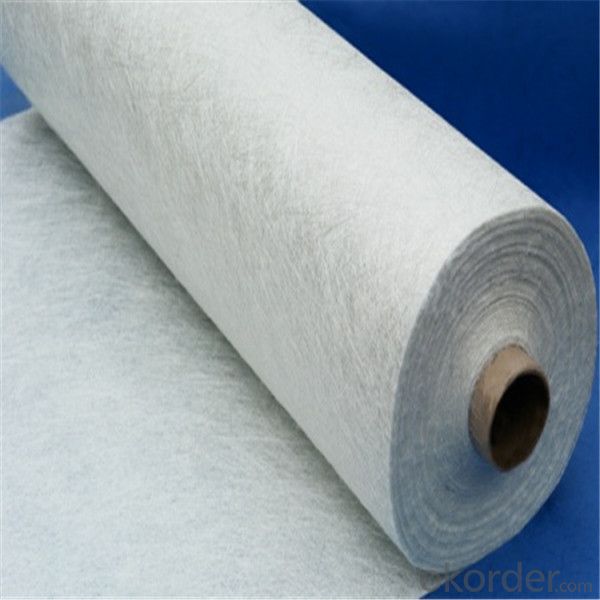
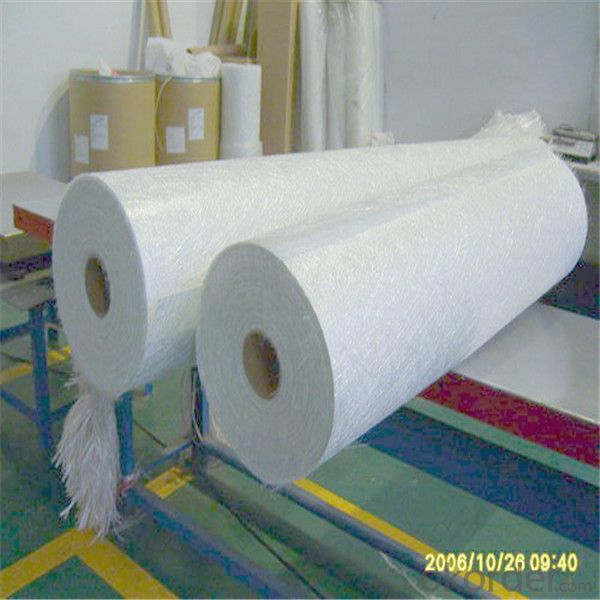
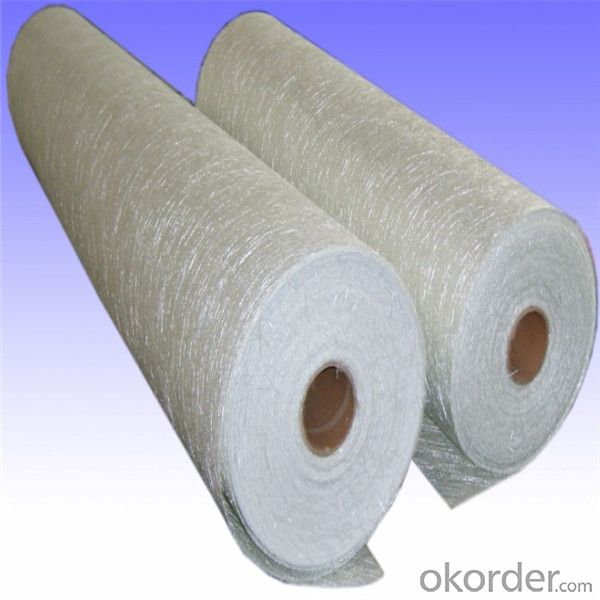
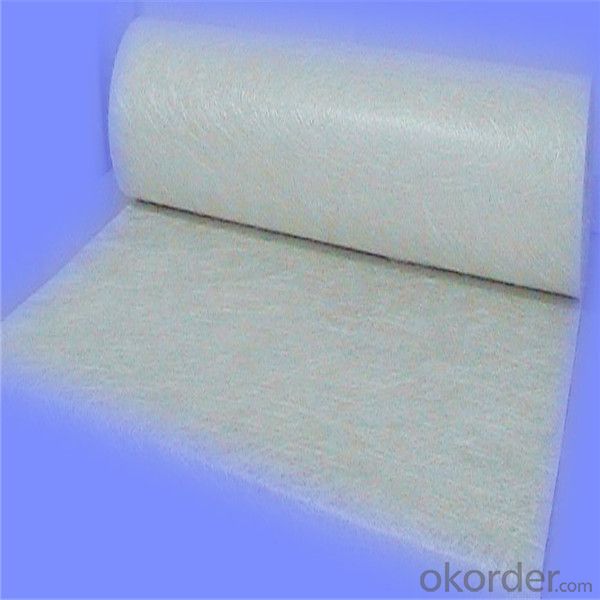
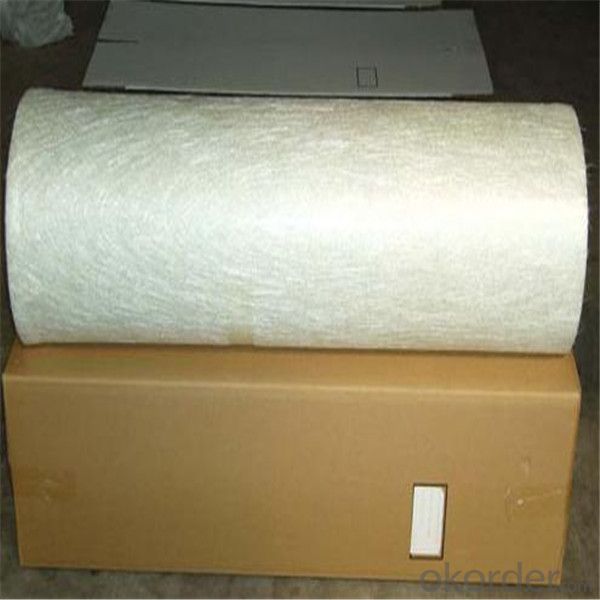
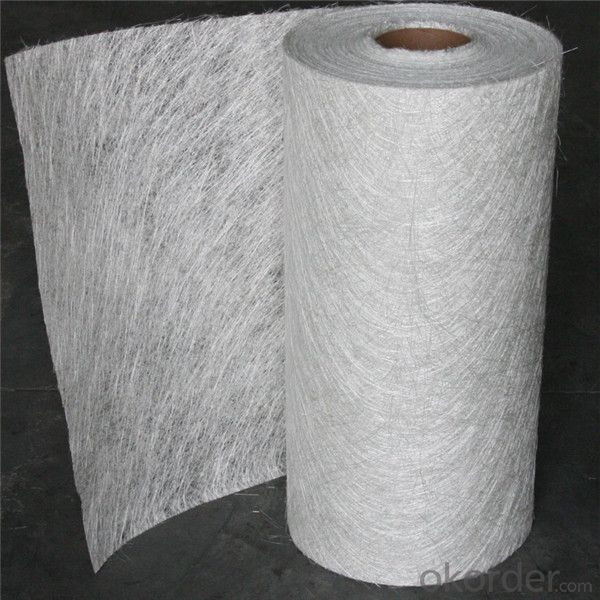
- Q: What is the flexibility of fiberglass mat tissue at low temperatures?
- The flexibility of fiberglass mat tissue at low temperatures is generally maintained, as fiberglass has low thermal expansion and contraction properties, allowing it to retain its flexibility even in cold conditions.
- Q: How does fiberglass mat tissue perform in terms of thermal conductivity?
- Fiberglass mat tissue exhibits excellent thermal conductivity performance. Its fine glass fibers composition contributes to a low thermal conductivity value, resulting in effective heat transfer insulation. The interwoven fibers form a barrier that hinders heat movement, making it a highly suitable material for thermal insulation purposes. Moreover, the mat tissue is frequently combined with binders or coatings to enhance its thermal resistance characteristics. In summary, fiberglass mat tissue is a dependable option for reducing thermal conductivity and delivering insulation across diverse industries and applications.
- Q: Can fiberglass mat tissue be used for insulation in chemical storage tanks?
- Indeed, insulation in chemical storage tanks can be achieved using fiberglass mat tissue. The exceptional insulation properties of fiberglass render it a fitting substance for tanks that house chemicals. Typically composed of finely interwoven glass fibers, the fiberglass mat tissue constitutes a robust and long-lasting material. Its application to the inner walls of the tank effectively insulates and thwarts heat transfer. Furthermore, fiberglass exhibits corrosion resistance and can endure the detrimental effects of the chemicals commonly stored within these tanks, making it an optimal option for insulation in chemical storage tanks.
- Q: Can fiberglass mat tissue be used for swimming pool construction?
- Certainly, fiberglass mat tissue is suitable for the construction of swimming pools. This versatile material is widely utilized in the construction sector due to its robustness, durability, and ability to withstand water and chemicals. Its primary purpose is to reinforce the swimming pool shells, thereby enhancing their structural integrity and preventing any potential issues like cracking or leakage. Moreover, fiberglass mat tissue is renowned for being lightweight and easy to manipulate, which contributes to its popularity among pool builders. Nonetheless, it is crucial to ensure that the fiberglass mat tissue employed in swimming pool construction adheres to the required standards and regulations in order to guarantee the pool's safety and longevity.
- Q: How does fiberglass mat tissue perform in terms of heat insulation?
- Fiberglass mat tissue exhibits a relatively satisfactory performance when it comes to heat insulation. Its composition, consisting of delicate glass fibers and a bonding agent, grants it commendable thermal resistance properties. These fibers effectively capture pockets of air, which function as thermal barriers by diminishing heat transfer. Consequently, fiberglass mat tissue emerges as an appropriate insulation material for a diverse range of applications, including the construction industry, where it is employed to insulate walls, roofs, and attics. Furthermore, fiberglass mat tissue finds extensive use in the automotive and aerospace sectors to insulate engine compartments and curtail heat transfer through vehicle panels, respectively. Nevertheless, it is worth noting that although fiberglass mat tissue offers exceptional thermal insulation, it may not be as efficient as alternative insulation materials like foam or mineral wool, which possess higher thermal resistance values. Ultimately, the suitability of fiberglass mat tissue as an insulation material hinges upon the specific requirements of the project at hand.
- Q: Can fiberglass mat tissue be used for making furniture?
- No, fiberglass mat tissue is not suitable for making furniture. It is primarily used in composite materials and construction applications, not for furniture manufacturing.
- Q: Is fiberglass mat tissue suitable for insulation in educational facilities?
- Indeed, fiberglass mat tissue proves to be a suitable option for insulation in educational facilities. Owing to its exceptional thermal insulation properties, fiberglass mat tissue is widely employed in insulation applications. This lightweight and cost-effective material effectively insulates buildings, including educational facilities, from heat loss or gain. Moreover, fiberglass mat tissue is renowned for its fire-resistant characteristics – a vital consideration in any structure, particularly in educational facilities where the safety of students and staff takes precedence. Furthermore, the installation of fiberglass mat tissue is effortless, and it does not necessitate extensive upkeep, thus rendering it a convenient selection for insulation in educational facilities.
- Q: Is fiberglass mat tissue suitable for insulation in laboratories?
- Fiberglass mat tissue is indeed suitable for insulation in laboratories. It is a commonly used material for thermal insulation due to its excellent thermal properties. Fiberglass mat tissue has a high resistance to heat transfer, making it an effective insulator to maintain stable temperatures within laboratory spaces. Additionally, fiberglass mat tissue is also resistant to moisture, chemicals, and fire, which are crucial factors in laboratory settings. It can withstand exposure to harsh chemicals and does not degrade or lose its insulating properties over time. This makes it ideal for insulation in laboratories where various chemicals and substances are handled. Furthermore, fiberglass mat tissue is easy to install and can be customized to fit specific insulation requirements. It can be applied to walls, ceilings, and pipes to create a barrier that prevents the transfer of heat, ensuring a controlled environment within the laboratory. Overall, fiberglass mat tissue is a suitable choice for insulation in laboratories due to its thermal resistance, chemical resistance, fire resistance, and ease of installation. It helps to maintain stable temperatures, protects against chemical exposure, and ensures safety in laboratory environments.
- Q: Does fiberglass mat tissue provide good thermal conductivity?
- No, fiberglass mat tissue does not provide good thermal conductivity. Fiberglass is known for its insulating properties, meaning it is a poor conductor of heat. It has a low thermal conductivity, which means it does not effectively transfer heat. This makes fiberglass mat tissue a suitable material for insulating applications where heat transfer needs to be minimized, such as in building insulation or in the manufacturing of heat-resistant clothing.
- Q: Is fiberglass mat tissue suitable for HVAC insulation?
- Fiberglass mat tissue is indeed a suitable material for HVAC insulation. It is a lightweight and flexible substance commonly utilized in insulation applications due to its exceptional thermal insulation properties. With its effective heat insulation, it assists in maintaining a comfortable and energy-efficient environment within HVAC systems. Moreover, fiberglass mat tissue's resistance to moisture prevents the growth of mold or mildew, making it an appropriate choice for HVAC insulation in areas where condensation and moisture may occur. Its easy installation and ability to be cut to fit around HVAC components ensure a proper and secure insulation seal. In summary, fiberglass mat tissue is a dependable and long-lasting insulation material extensively employed in HVAC systems to enhance energy efficiency and thermal performance.
Send your message to us
Fiberglass Mat Tissue Chopped Strand Mat for Thermoplastics
- Loading Port:
- Tianjin
- Payment Terms:
- TT OR LC
- Min Order Qty:
- 100 m.t.
- Supply Capability:
- 20000 m.t./month
OKorder Service Pledge
Quality Product, Order Online Tracking, Timely Delivery
OKorder Financial Service
Credit Rating, Credit Services, Credit Purchasing
Similar products
Hot products
Hot Searches
Related keywords
